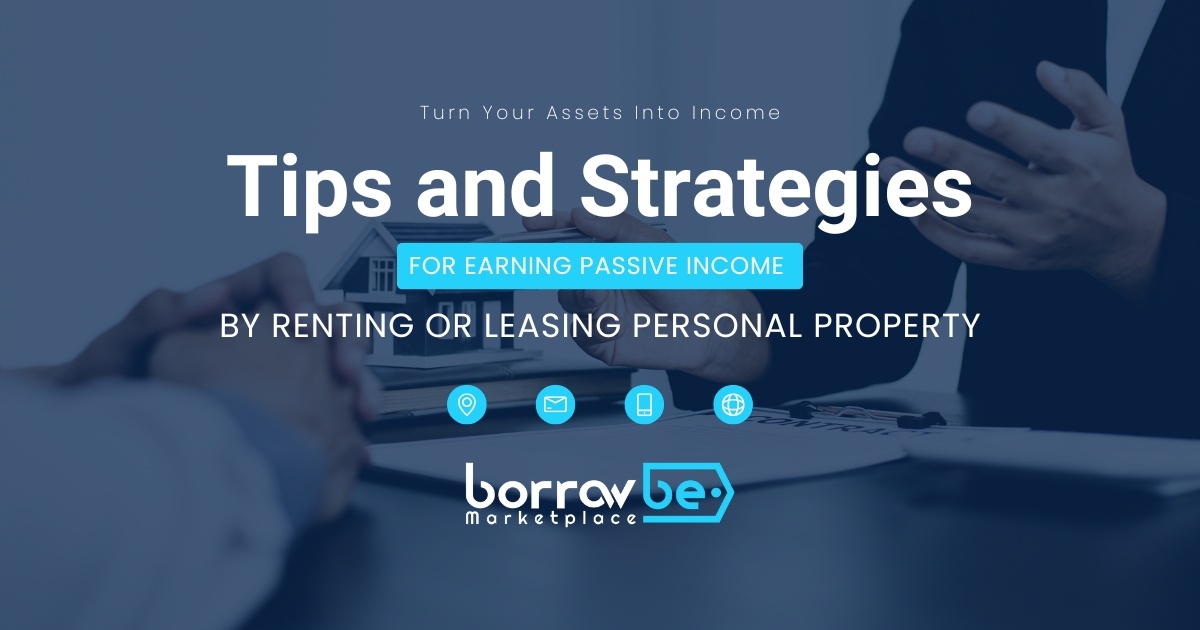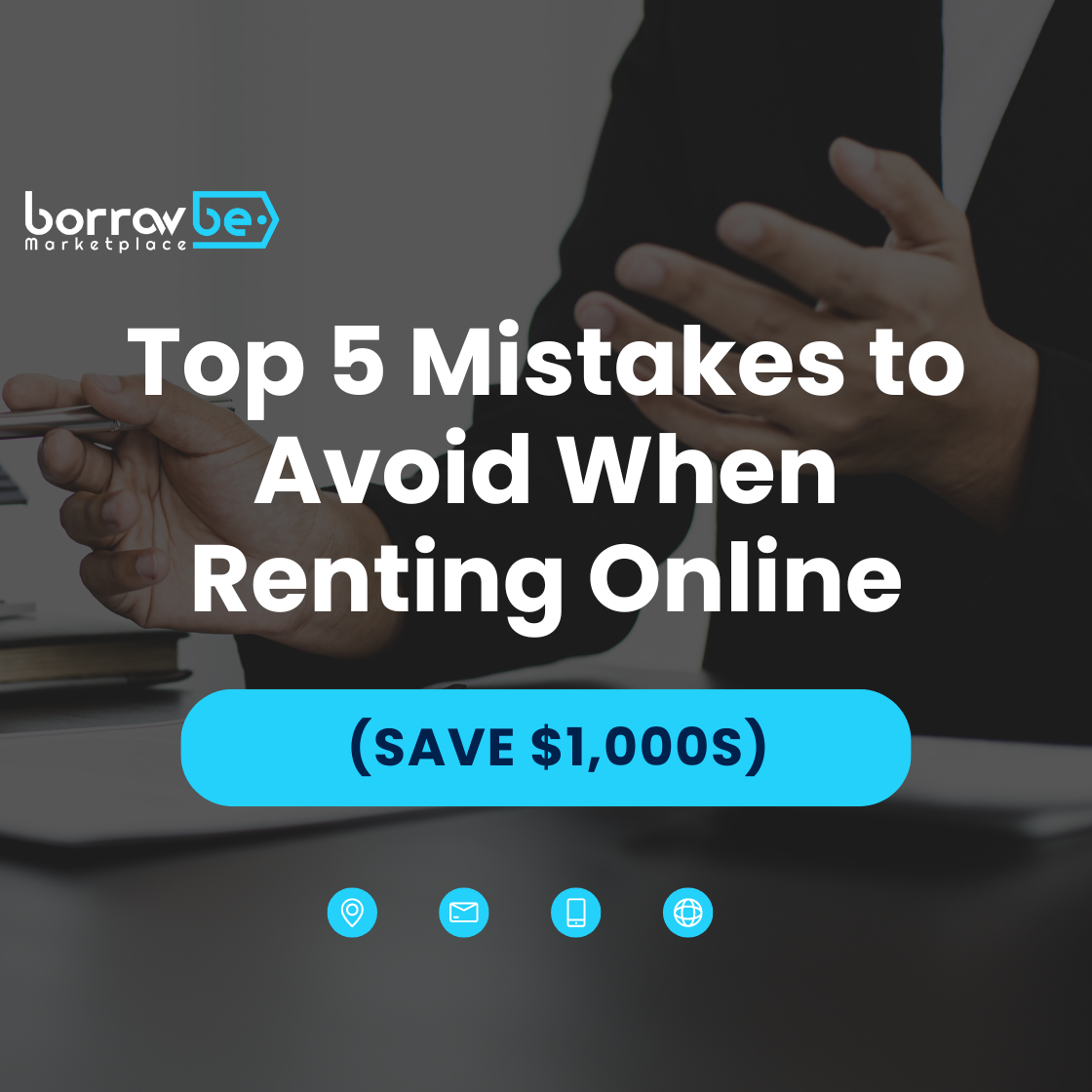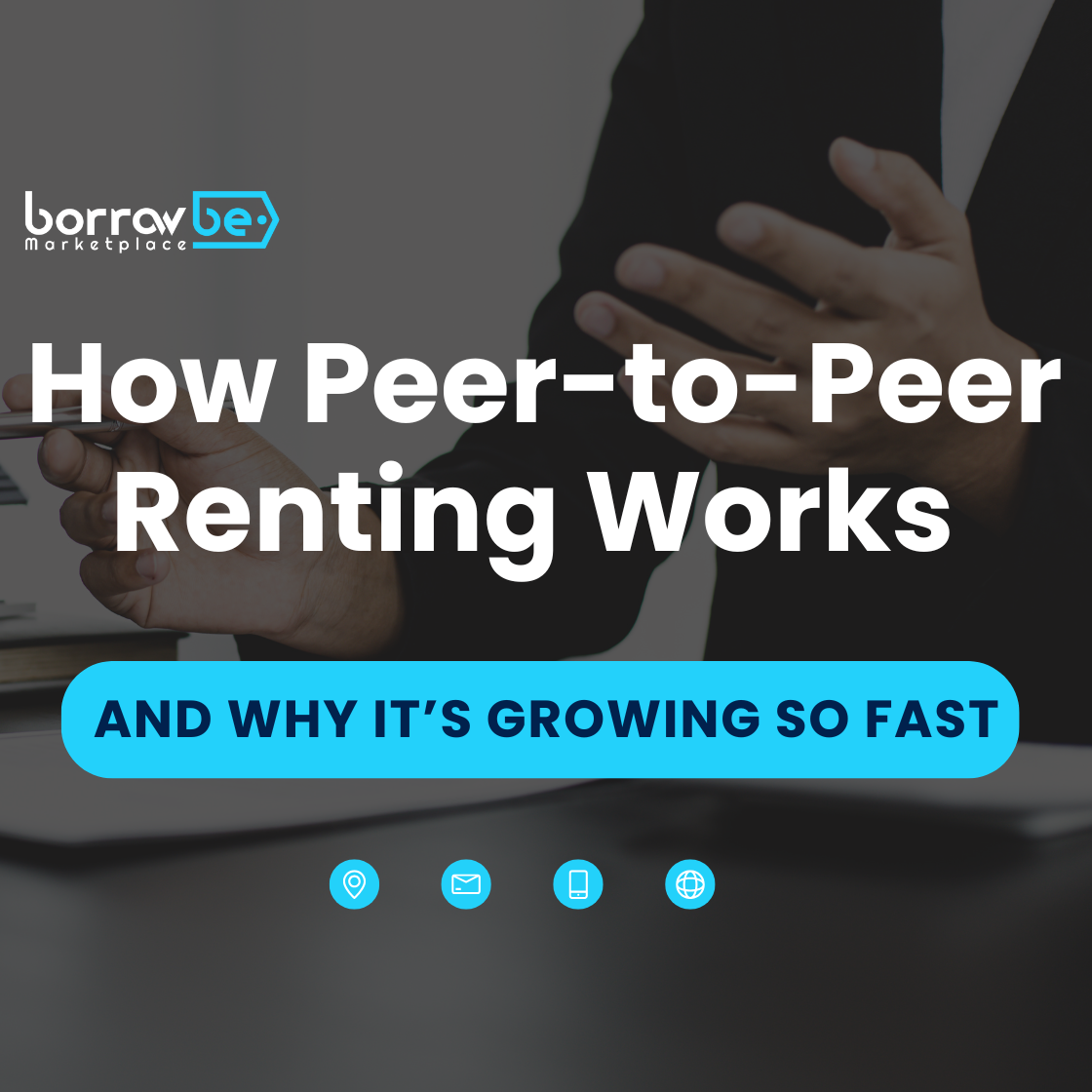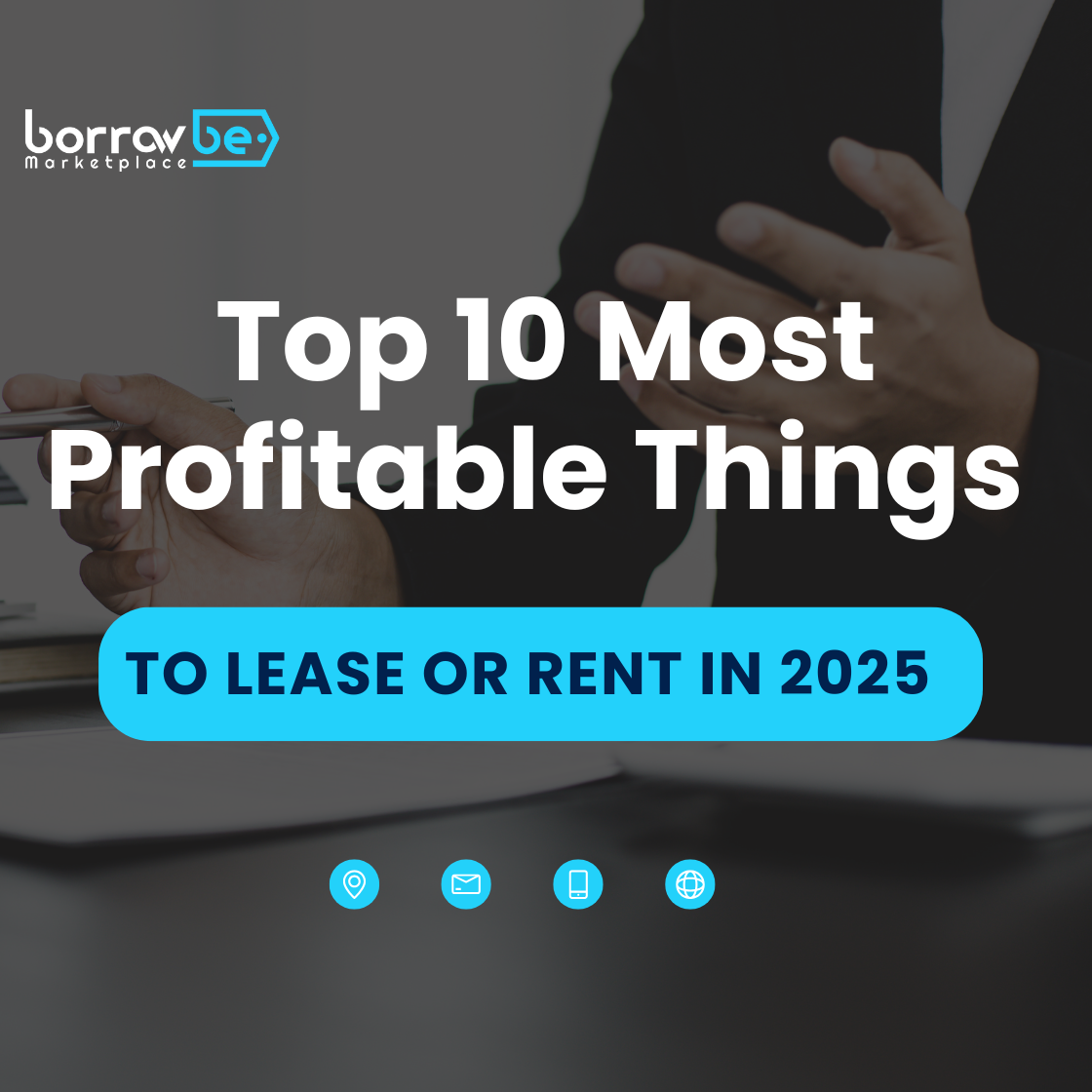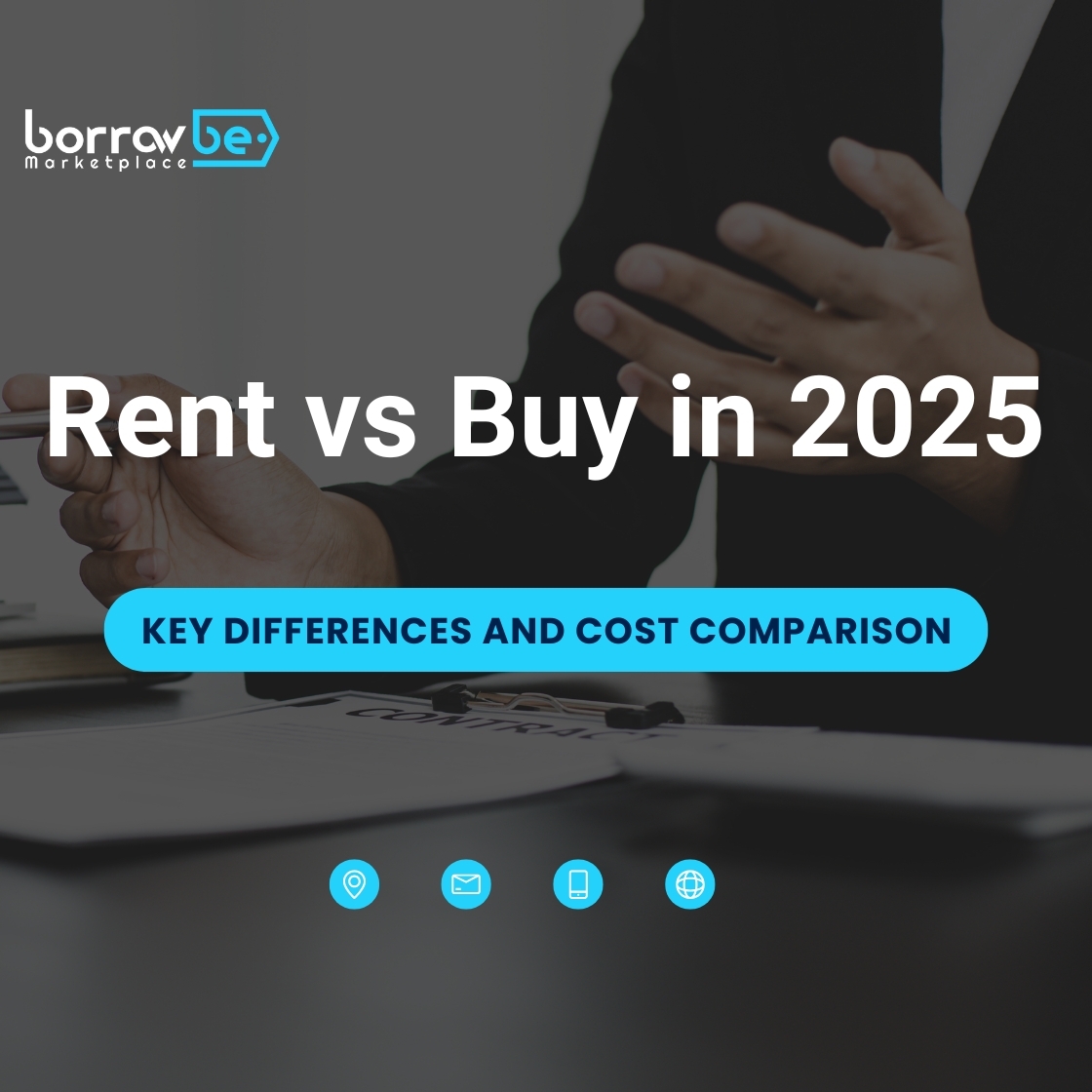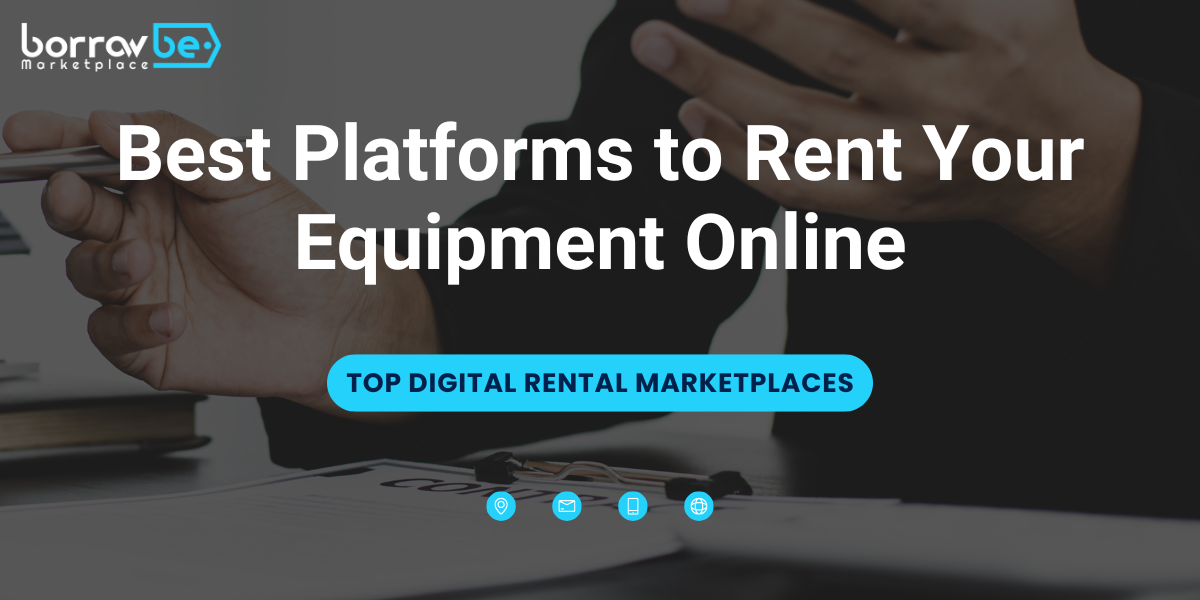Introduction
Earning passive income by renting or leasing personal property is an effective way to maximize the value of your assets. Whether you own real estate, vehicles, or specialized equipment, you can generate steady revenue without active involvement. With the rise of online platforms like BorrowBe, listing your property for rent has never been easier. This article explores the best strategies, tips, and considerations for turning your possessions into profitable income streams.
Identifying Profitable Assets for Rental Income
Real Estate and Vacation Rentals
One of the most common ways to generate passive income is by renting out residential or vacation properties. The demand for short-term rentals has surged with platforms like Airbnb and BorrowBe.
- Long-term leasing: Provides stable income with minimal management.
- Short-term rentals: Higher earning potential, especially in tourist-heavy locations.
- Vacation rentals: Seasonal income opportunities with premium pricing.
To explore rental listings, visit House for Rent.
Vehicles and Transportation
Personal and commercial vehicles can be leased to generate passive income. This includes:
- Personal car rentals: Ideal for those with unused vehicles.
- Luxury or specialty cars: High demand for weddings, events, and executive transport.
- Trucks and vans: Businesses often rent vehicles for short-term logistics.
List your vehicle for lease at Car for Lease.
Equipment and Machinery
Many industries require specialized machinery, making equipment rentals a lucrative passive income source.
- Construction machinery: High demand for short-term projects.
- Photography and video gear: Ideal for professionals needing temporary equipment.
- Event supplies: Tables, chairs, lighting, and sound systems are frequently rented.
Find potential renters at Construction Machinery.
Effective Strategies for Maximizing Rental Income
1. Pricing Your Rental Property Competitively
Setting the right rental price is key to attracting tenants while maximizing profit. Consider:
- Market research: Compare similar rentals in your area.
- Seasonal pricing: Adjust rates based on demand fluctuations.
Discounts for long-term rentals: Encourage extended bookings.
2. Enhancing Property Appeal and Maintenance
To maintain a high occupancy rate, ensure your property remains appealing:
- Regular maintenance: Prevents costly repairs and keeps tenants satisfied.
- High-quality photos: Listings with professional images attract more bookings.
- Amenities: Wi-Fi, air conditioning, and security systems can justify higher rental prices.
3. Leveraging Online Rental Platforms
Platforms like BorrowBe simplify the process of renting personal assets. Benefits include:
- Wider audience reach with online visibility.
- Secure payment processing to minimize financial risk.
- Built-in insurance options for asset protection.
Legal Considerations for Renting Personal Property
Understanding Local Laws and Regulations
Before listing your property for rent, familiarize yourself with local rental laws:
- Zoning laws: Check if short-term rentals are permitted.
- Tax implications: Rental income may be subject to taxation.
Tenant rights and lease agreements: Essential for legal protection.
Insurance and Liability Coverage
Protect your assets with the right insurance policies:
- Home rental insurance covers property damages.
- Auto rental insurance safeguards against vehicle accidents.
- Equipment rental insurance ensures compensation for lost or damaged items.
Marketing and Promoting Your Rental Listings
Creating Engaging Listings
A well-optimized rental listing increases your chances of securing bookings. Tips include:
- Clear and concise descriptions highlighting key features.
- SEO optimization with keywords like "affordable rental options" and "short-term lease."
High-quality images and videos to showcase the property.
Utilizing Social Media and Online Ads
Promote your rental on social media and classified ad platforms:
- Facebook and Instagram ads target local renters.
- Google Ads can boost visibility for high-demand keywords.
- Influencer collaborations can enhance credibility and reach.
FAQs
1. How much can I earn from renting my property?
Earnings vary based on location, demand, and asset type. For example, short-term vacation rentals in tourist hotspots can yield higher profits than long-term leases in suburban areas. Conducting market research and adjusting pricing accordingly can help maximize earnings.
2. Is renting out personal property safe?
Yes, but it requires precautionary measures. Using a secure platform like BorrowBe ensures tenant verification, secure payment processing, and optional insurance coverage to protect your property from damage or theft.
3. Do I need a business license to rent out my property?
It depends on local regulations. Some areas require a business license or permit for short-term rentals, while others have minimal requirements for private leasing. Checking with local authorities before listing your property is advisable.
4. What is the best way to manage a rental property remotely?
Utilizing property management services, smart home security systems, and rental platforms with automated booking and payment systems can streamline the remote management process. Regular maintenance and tenant communication are also key.
5. How do I get started with listing my property for rent?
To start renting your property, follow these steps:
- Choose the asset you want to rent.
- Take high-quality photos and write a compelling description.
- List your property on BorrowBe for maximum exposure.
- Promote your listing using social media and online ads.
- Screen potential renters and finalize agreements.
Conclusion
Renting or leasing personal property is a smart way to earn passive income. With the right pricing strategies, effective marketing, and legal precautions, you can maximize your earnings while minimizing risks. Platforms like BorrowBe simplify the process, making it easier to connect with renters. Start monetizing your assets today by listing your property or downloading the BorrowBe App for seamless management.
